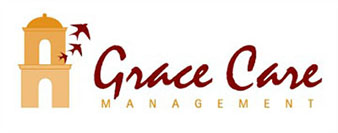As a Geriatric Care Manager, I have been involved in placing elders in long term care facilities over the years. I am often asked to continue on managing their care.
Many people may think that it’s unnecessary to have a nurse or a professional advocate overseeing your loved once they move into a “nursing home” or assisted living. The truth is that your loved one’s health care still needs management and advocacy.
It’s especially necessary in “Assisted Living” facilities and here’s why.
Attorney Eric Carlson from NAELA (National Academy of Elder Law Attorneys) has this to say about California’s assisted living policies.
“California’s assisted living policy is schizophrenic. Rules have been changed to allow the admission and retention of individuals with serious care needs, but quality of care standards have lagged far behind.
Facilities are not expected to have any health care expertise, and the state-licensing agency (the California Department of Social Services) is clear that it does not evaluate the health care received, or not received, in a facility. Any health care is supposed to be provided by an outside provider such as a home health agency, and that outside care is essentially considered outside the responsibility of both the facility and the Department.
The current situation is a prescription for disaster. It is not surprising that the mixture of sicker residents and low standards is leading to the horror stories that pop up in news media across the country.
Assisted living standards must be raised so that residents can be sure that a facility is not just a glorified board and care home. A chandelier in the lobby cannot compensate for the abysmal quality of care that is seen in too many assisted living facilities.”
My sentiments exactly. Not only my sentiments but my experience over the past 20 years. I have personally witnessed terrible things happening on a regular basis even in the best assisted living facilities due to this disconnect between our medical and non-medical models. The very thing attorney Carlson speaks about above.
Just recently, I find myself becoming increasingly concerned about this disconnect.
There is a new MediCal Waiver program in California which will assist elders who are currently in a skilled nursing setting to move to a lower level of care or assisted living. This may work well for some, but I am worried about those who really don’t understand what their needs are or what assisted living facilities do and more importantly, don’t do.
Yes, moving from higher level of care to lower level of care is said to be voluntary but that is cold comfort given the current trend for skilled nursing facilities to discharge MediCal patients prematurely to lower levels of (non-medical) care.
My fear is that with the increased incentive to relocate MediCal patients, these inappropriate discharges will gain even more momentum.
To compound the problem, as long as assisted living facilities can make extra money on their end by taking these more complex medically ill elders (those in Tiers 3 & 4 of the waiver program), they are likely to do so. Even though the assisted livings are unable to provide the nursing care needed for complex medical needs, they will be incentivized to over promise and under-deliver.
Double jeopardy.
A system that already victimizes elders in the black hole between medical and non-medical models is about to get worse without protective upgrades in policy. Assisted living facilities must be required to have licensed nurse/s on duty around the clock (not just “on call”) in their facilities to meet the needs of their elders with chronic but complex medical needs.
How’s this for a solution? A portion of the money the State saves on moving these elders to a lower level of care could and should be reallocated to pay for increased home health nursing visits as well as on-site licensed nurses for any assisted living facilities participating in the MediCal Waiver Program.
Meanwhile, if you find your loved one in as assisted living facility with medical needs which are not being properly addressed, please contact Grace Care Management. We can help.
If you need help managing the care of your loved one and implementing any of these steps, we are here for support. Give Grace Care Management a call at (760) 789-9177 for a free consultation.


